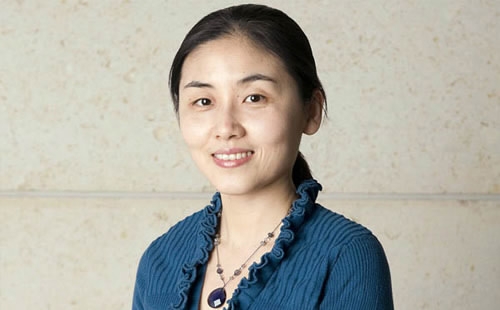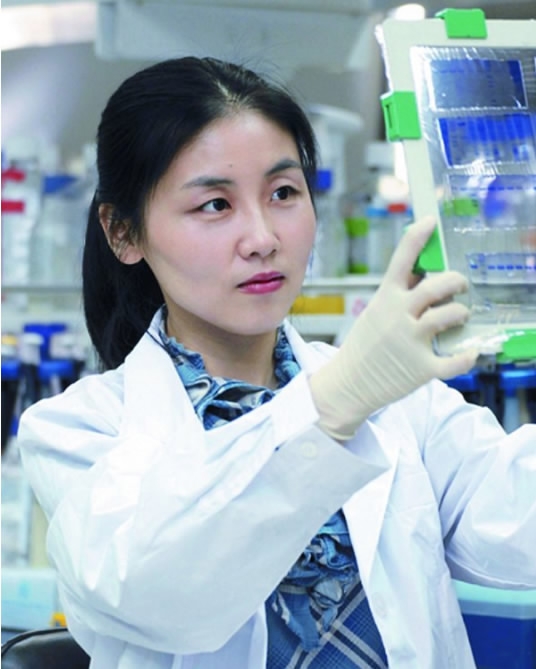
China
13:06, 10-May-2017
Top Tsinghua scientist's move to Princeton sparks academic debate

Yan Ning (also known as Nieng Yan), the lead researcher in molecular biology and the youngest professor at Tsinghua University in Beijing, was a prominent example of a top talent lured back from overseas to China.
But this month the 40-year-old will take up a professorship at Princeton University, after a decade of working in her home country.

Yan’s team published the first research about crystal structure of the human glucose transporter GLUT1 in Nature magazine in 2014. /Baidu Photo
Yan’s team published the first research about crystal structure of the human glucose transporter GLUT1 in Nature magazine in 2014. /Baidu Photo
In a report in Guangming Daily on Monday, a Tsinghua University spokesperson expressed pride at Chinese researchers being recognized by international institutions.
“We believe the research method of Tsinghua can be brought to the international stage, ensuring Chinese researchers have a bigger impact in the world,” the spokesperson said.
Yan’s departure still sparked a wide-ranging discussion about China's academia, after she publicly condemned unfair treatment when applying for funds from the government-run National Natural Science Foundation.
Yan became the youngest professor at Tsinghua University in 2007 after doctoral and post-doctoral studies at the department of molecular biology at Princeton University. She was 30 that year.
The team led by her undertook groundbreaking research in the physical structure of a protein related to various diseases, such as cancer and diabetes, in 2014. Yan was then honored with the "Young Investigator Award" by international organization Protein Society in 2015.
“Research funds should also serve risky but important research. Do they only support projects which are certain to be a success?” Yan asked in her blog back in 2014. “Is that an efficient way of innovation?”
Unfortunately, Yan’s application for funding was rejected and she was not afforded an interview chance the following year.

Yan was honored as "Young Investigator Award" by Protein Society in 2015. /Baidu Photo
Yan was honored as "Young Investigator Award" by Protein Society in 2015. /Baidu Photo
The public connected her decision to return to the US with the blog soon after the news was released, condemning bureaucracies for discouraging top researchers. On an online community of Chinese researchers, Sciencenet.cn, users discussed if the government should be blamed for poor talent management.
Yan’s response came on Monday in an interview with Guangming Daily. She insisted that the principal reason for her move was the desire for a new environment.
“I was afraid of being in an environment for too long, which would make me ignorant without even knowing it,” said Yan. “I took Princeton’s job offer back in 2015.”
Instead of cutting off connections to Tsinghua University, Yan indicated her aim is to promote international collaboration between the two universities in the future.

SITEMAP
Copyright © 2018 CGTN. Beijing ICP prepared NO.16065310-3
Copyright © 2018 CGTN. Beijing ICP prepared NO.16065310-3